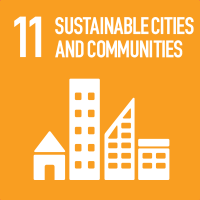Studying at the University of Verona
Here you can find information on the organisational aspects of the Programme, lecture timetables, learning activities and useful contact details for your time at the University, from enrolment to graduation.
Study Plan
The Study Plan includes all modules, teaching and learning activities that each student will need to undertake during their time at the University.
Please select your Study Plan based on your enrollment year.
1° Year
| Modules | Credits | TAF | SSD |
|---|
2° Year It will be activated in the A.Y. 2025/2026
| Modules | Credits | TAF | SSD |
|---|
1 module among the following| Modules | Credits | TAF | SSD |
|---|
| Modules | Credits | TAF | SSD |
|---|
1 module among the following| Modules | Credits | TAF | SSD |
|---|
Legend | Type of training activity (TTA)
TAF (Type of Educational Activity) All courses and activities are classified into different types of educational activities, indicated by a letter.
Supplier management and procurement (2024/2025)
Teaching code
4S012434
Teacher
Coordinator
Credits
6
Language
Italian
Scientific Disciplinary Sector (SSD)
SECS-P/08 - MANAGEMENT
Period
Secondo semestre LM dal Feb 17, 2025 al May 23, 2025.
Courses Single
Authorized
Learning objectives
The course aims to guide students in acquiring the knowledge and skills necessary to understand the role of the purchasing function in organizations and along the supply chain, as well as knowing the strategic, contractual, and operational management tools for purchases and the strategies for an effective selection and evaluation of suppliers. Furthermore, the student will acquire knowledge related to the performance and risk measurement tools related to suppliers and purchases.
At the end of the course, the student will be able to demonstrate his ability to understand and develop sourcing strategies and operational actions for evaluating suppliers with a view to efficiency and effectiveness in the organization and along the supply chain.
Prerequisites and basic notions
Basic knowledge of management topics are necessary prerequisites.
Program
The course will cover the following macro-topics with a theoretical-methodological approach, case studies, and in-depth discussions with experts from different sectors:
- Introduction to the strategic and operational management of purchases and supplies
- Management of sourcing and procurement strategies
- Analysis of the different objectives and roles in the organization
- Negotiating and supplier contractual management rules
- Vendor rating techniques and approaches for the selection and management of suppliers
- Definition, measurement, and monitoring of supplier performance
- supply risks management and supply chain resilience
- Strategic and financial vulnerability management tools
Bibliography
Didactic methods
Lectures, case studies with invited speakers, business cases, and group works.
The lessons, as well as the related exams, take place in person. In particular, the importance of participating in classroom activities is underlined in order to benefit from interaction with teachers and participation in project work activities, presentations and group work.
Furthermore, as a further service to students, the lessons are also expected to be video-recorded. The video recordings are available in the teaching e-learning space for the entire academic year. However, it is underlined that the recordings do not represent a substitute for the lessons and activities carried out in the classroom.
Learning assessment procedures
The exam is written and oral. The written exam consists of the answer to open questions, based on the study program and concerning theoretical concepts and methods for applying management tools described in the course’s program. The oral exam consists in verifying the theoretical knowledge and reasoning ability of the student on the topics in the program.
Evaluation criteria
The overall assessment is based on the verification of knowledge and skills relating to the topics being studied, considering both the theoretical and conceptual aspects, and the ability to critically analyze with reference to practical business cases. The final evaluation is expressed in 30/30.
Criteria for the composition of the final grade
There is a bonus (maximum 3 points) which is awarded to the project work (optional) which is added to the mark in 30/30ths of the written and oral exam mark
Exam language
italiano



